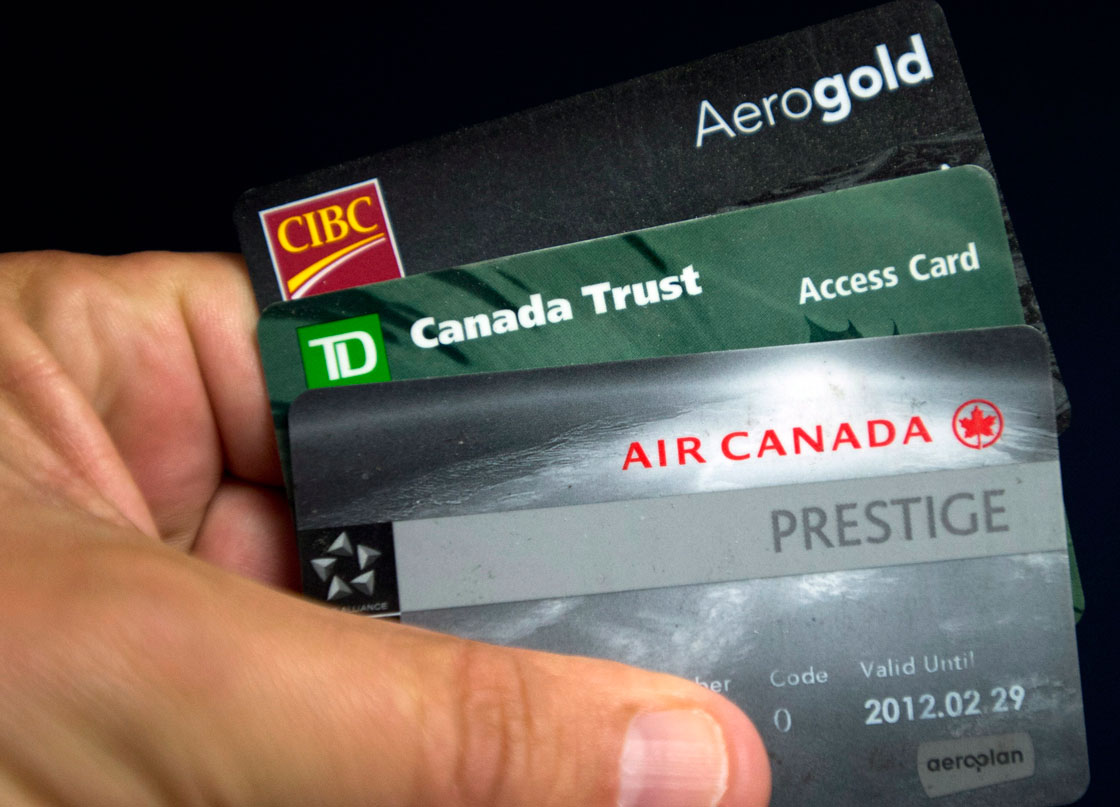Canadians eagerly collect credit-card rewards but it seems don’t put much thought into the program they’re actually earning points with. At least, that’s according to new survey results that show most of us stick with our bank’s program rather than shop around.

A majority, or six in 10 Canadian credit-card users, opt to collect rewards through whatever card and program is offered through their bank, a new survey from American Express Canada says. A paltry 15 per cent actually research what programs offer what rewards and add up what makes sense for them.
But with the high-profile move of travel rewards program Aeroplan to TD from CIBC this year as well as the launch of CIBC’s own Aventura program, competition between cards is ratcheting up, and delivering some of the best rewards consumers have ever seen, experts say.
It might be time to look around.
“We’re seeing a lot of new options hit the market,” said Penelope Graham, editor of ratesupermarket.ca, which compares everything from mortgage rates to insurance coverage.
“Canadians traditionally have been loyal to their bank and banks do a fantastic job of marketing a very complete package. They make it easy for customers to have everything with them – their mortgage, their credit cards, their bank accounts,” Graham said.

Get weekly money news
“But that’s shifting, people are starting to realize there are other card options out there.”
Read more: Five things to know about Aeroplan’s swith to TD from CIBC
A big reason for the raised awareness is the somewhat controversial Aeroplan move. Looking to refresh the program and prevent collectors from leaving during the transition, Aeroplan’s parent, Aimia, has introduced new program tiers and more generous reward options.
The moves are also in response to new cards that have entered the market in recent years, like RBC’s Avion card and the Capital One Aspire card that don’t attach travel or seating restrictions on cards.
“Previously travel rewards had a bit of a bad rap. You would collect points for months and months and you would go to cash them in and have a difficult time with customer service, seat restrictions,” Graham said. “Now, lenders have been listening and in order to be competitive they have to remove a lot of those restrictions.”
This summer’s shake up, including the launch of CIBC’s Aventura program, has raised the stakes for all card issuers, while opening a window to win over customers who might otherwise have never considered switching cards.
American Express for example is offering 25,000 points for customers who switch to its Gold Rewards card – enough for a round trip to “almost anywhere in North America,” the company said. Capital One’s Aspire card offers $350 in value that can likewise be redeemed immediately on a flight.
“There are currently a lot of changes in the industry that are prompting more people to evaluate the cards they are using, perhaps for the first time in years,” Brett Mooney, vice-president of customer acquisitions at American Express Canada, said.
Ratesupermarket’s Graham says consumers should pick the card that suits their spending habits, suggesting that cards like MBNA’s Smart Cash, which provides cash back for credit spent on groceries and gas is a popular option among visitors to the site.
“The right card really does depend on a consumer’s spending habits. For example a lot of these luxurious cards come loaded with perks but they might have an annual fee or come with a high interest rate,” she said.
“The best way to go about it is to pick something that’s going to earn rewards effortlessly with spending that you’re already doing.”
A comparison of cards can be found at Ratesupermarket here.






Comments